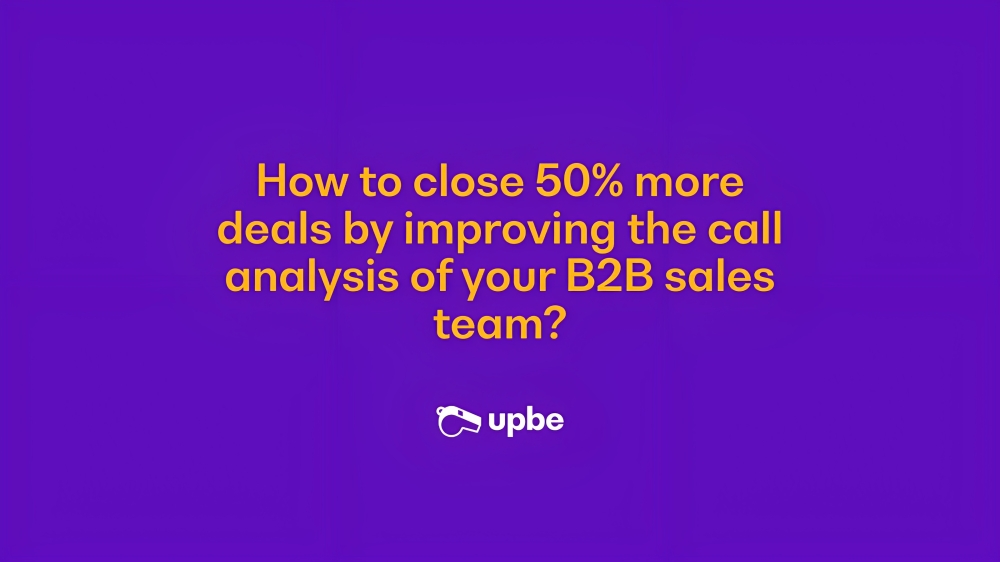
Revenue intelligence is revolutionizing the way we sell. This strategy is pushing companies to be more effective and definitely more profitable. How? By transforming tons of data into predictive intelligence and AI-powered actions, ready to be used.
With revenue intelligence, we are presented with an unprecedented view of the entire revenue lifecycle, from marketing to sales and finance. This allows us to have total control over the pipeline, guide our salespeople towards the most productive actions and, most importantly, achieve predictable revenue growth.
So if you’re ready to take your sales team to the next level, keep reading. We’ll show you how revenue intelligence can become your secret weapon to improve the performance and efficiency of your team.
What is Revenue Intelligence?
Revenue intelligence is an approach that uses artificial intelligence to gather and analyze sales data. By integrating data from different teams such as sales, marketing, support, and customer success, a unique source of information is created that is transformed into predictive insights and AI-based actions for better-informed decisions and greater revenue generation. This AI-based strategy provides actionable insights about the sales organization, driving revenue growth beyond mere data collection.
Revenue intelligence is transforming the role of sales representatives by providing them access to advanced purchase signals, guidance data, and forecasts, enabling them to prioritize prospects and personalize communications, leading to an increase in revenue.
How does Revenue Intelligence work?
It’s important to note that not all revenue intelligence platforms function the same way. However, at its core, revenue intelligence follows this basic process: it gathers data from your CRM, sales system, marketing platforms, website, and third-party sources; converts the data into intelligence through AI-driven algorithms and predictive analytics, and finally, leverages the intelligence to drive sales activities and inform every step of the sales process.
Let’s look at these functions in detail.
Data collection
Revenue intelligence software collects data from multiple points within the sales process, including:
- Website visits and interactions
- Content downloads
- Email opens, clicks
- Phone calls, response rates, messages left, call backs
- Conversation analysis
- Deal progression
- Adherence to sales playbook
- Etc.
Ultimately, the tool will collect the data that provides you with the best insights to drive your strategic decision-making.
Data Analysis
The main value proposition of revenue intelligence is to reveal answers to important questions. After setting up the platform according to the key questions, insights start to come in once the data is input. The platform can answer questions such as:
- Where to focus sales efforts
- Which prospects have the highest revenue potential
- What opportunities are being missed with current customers
- What is the unrealized value of the customer base
If a revenue intelligence platform doesn’t provide tangible answers to these questions, it’s necessary to look for another platform.
Why is Revenue Intelligence important for the B2B sector?
So, what makes it effective? It all boils down to several components, which we’ll look at in detail:
Data Integration
Revenue intelligence, using advanced AI techniques, centralizes and analyzes data in real time, generating actionable insights that support assessments, predictions, and fact-based decisions, rather than hunches, overcoming the hurdles of CRM systems that rely on manual data entry. This approach, by ensuring a larger amount of accurate data, significantly improves the analytical capabilities and effectiveness of all business functions.
Conversational Intelligence
Revenue intelligence offers the advantage of identifying opportunities for improvement in the performance of your sales team and representatives, allowing you to make real-time adjustments. However, if you only limit yourself to observing the amount of emails and calls, you could still use your conventional CRM. Conversational intelligence goes beyond by providing you with information about the quality of those interactions.
Through conversation analysis, you can extract valuable information from sales call recordings, such as tracking the sales process, the ratio between speaking and listening, concluding calls with next steps, effective communication of value proposition, ability to address objections, most common objections, and receptiveness of prospects.
Predictive Analytics
Revenue intelligence stands out for its predictive ability and strategic focus. By analyzing quantitative and qualitative data, sales leaders can accurately predict what will happen in the future and understand why it will occur. This information allows adjustments to be made and a strategic sales plan to be developed to meet set goals.
In the B2B sector, with its long sales cycles and high-value products/services, the implementation of a revenue intelligence system meets the unique requirements of this market and allows for more effective business operation.
Strategic and Operational Focus
Disconnects between marketing and sales functions can generate operational friction, lowering conversion rates, increasing customer and opportunity acquisition costs, and affecting efficiency. Revenue intelligence transforms the strategic and operational focus of all business functions, aligning them with the common goal of driving revenue growth and minimizing the risks associated with disconnects.
Active Sales Pipeline
Revenue intelligence provides intelligent automation and a comprehensive view of the sales pipeline, giving control over each prospect. This allows for more prospects to be converted, reduces customer acquisition costs, shortens sales cycles, and pursues more prospects, which drives the company’s revenue growth.
What are you waiting for to boost your sales with Revenue Intelligence?
Once actionable insights and intelligence are in place, it is crucial to put those insights into practice. This involves creating personalized and interactive content, segmenting the audience based on specific behaviors and attributes, training sales representatives based on data, making strategic decisions about where to focus sales efforts, guiding representatives through best practices, and taking actions based on the insights gained.
Revenue intelligence tools, like Upbe, have the power to turn data into gold, providing visualizations, forecasts, and guidance at every stage of the sales process. It’s like having a personal coach alongside each sales representative.
Don’t wait any longer and ask us for a demo now.
While Business Intelligence is a broader term that encompasses the analysis of raw data collected from various business operations to provide a clear insight into the company’s performance, it can be susceptible to human errors and delays due to its reliance on manual data collection. In contrast, Revenue Intelligence, which is a more specific subset, uses artificial intelligence to gather and analyze sales and product usage data in real time and automatically, with the aim of maximizing revenue and improving sales efficiency and productivity, providing a more complete and accurate picture of the customer journey.
To set up your own revenue intelligence system, you first need to understand who on your team will benefit from it and how they need it. Then, identify where your data will come from, set clear goals for your revenue intelligence system, choose a tool that meets the needs of your entire team, and establish a regular cadence of data analysis and decision-making. Choosing the right tool depends on a variety of factors, including the specific needs of your team, the tools it needs to integrate with, and your main goals.





3 Comments
Comments are closed.